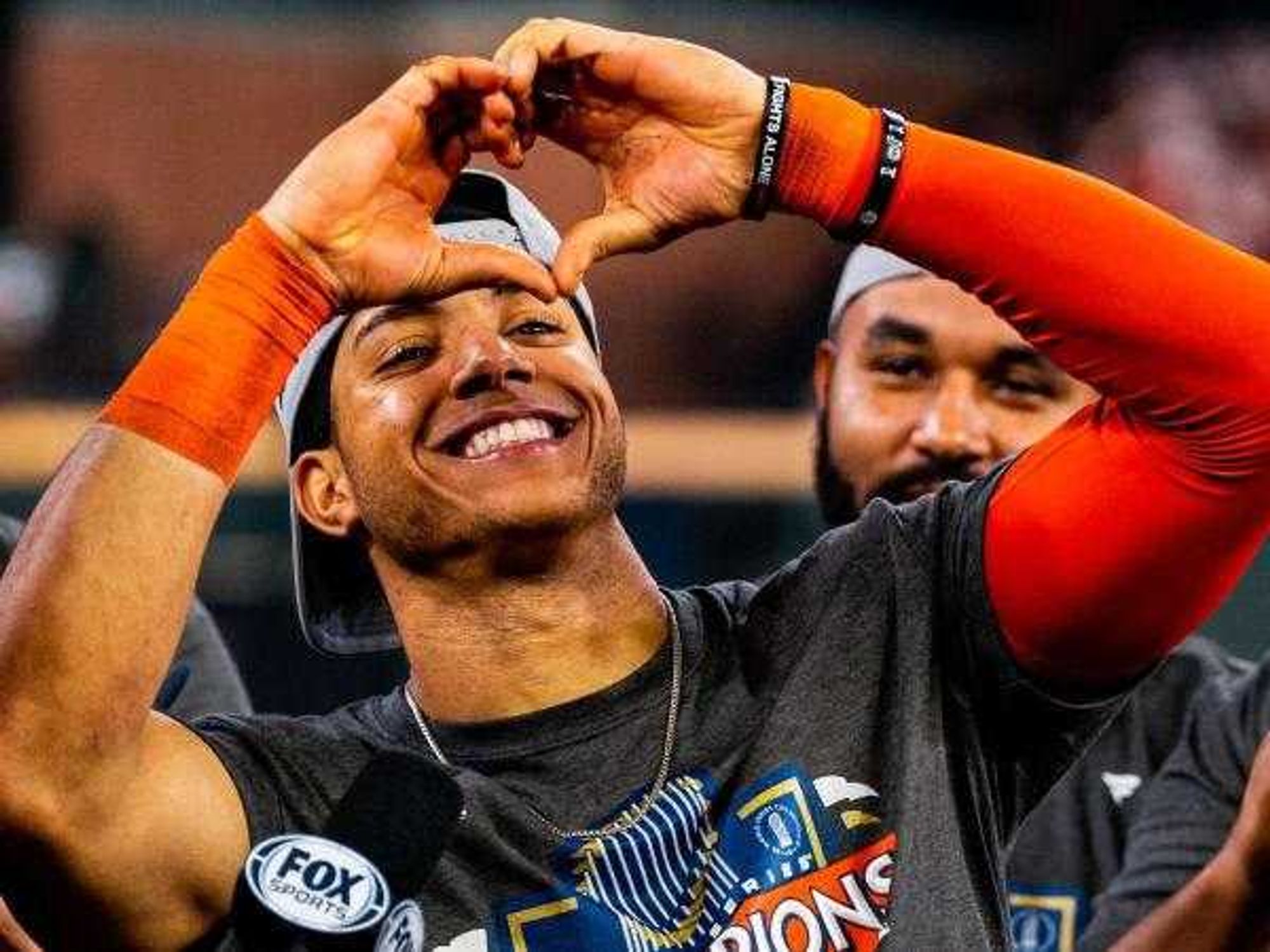Forget Conventional Thinking
Behind the Houston Astros draft shocker: Take Carlos Correa No. 1 with everyoneexpecting Mark Appel
 Carlos Correa
Carlos Correa Mark Appel
Mark Appel Byron Buxton
Byron Buxton Astros general manager Jeff Luhnow
Astros general manager Jeff Luhnow
So much for the Houston Astros sticking to the expected script.
First-year general manager Jeff Luhnow and the Astros shocked the Major League Baseball world by taking Puerto Rican shortstop Carlos Correa with the No. 1 pick in the MLB Draft Monday night, sticking a fastball into convention's ear. Every draft analyst had the Astros taking Stanford pitcher Mark Appel instead with Georgia high school outfielder Byron Buxton the only other real possibility.
Instead the Astros went shortstop, seeing the chance at an Alex Rodriguez-type star in Correa.
"Getting a young player who could turn into a superstar was really our priority," Luhnow said.
This is the most important move of the Jim Crane ownership era, one that could go a long way toward determining whether Luhnow is deemed a success.
The Astros found themselves holding the No. 1 overall pick in a year without a Bryce Harper or a Stephen Strasburg to grab.
Correa isn't just the apple of the Astros' eye. He instantly becomes the most visible member of a franchise that is still desperately trying to win back fans.
"He's going to be an offensive powerhouse," Luhnow said of Correa. "He's going to be a middle of a lineup type of hitter."
In going with the 17-year-old, tall (6-foot-4, 190 pounds), athletic shortstop (the highest player ever drafted from Puerto Rico), the Astros showed that they will embrace risk taking.
Luhnow admitted that the Astros didn't decide on Correa until the last hour before the draft, calling it "sort of a last-minute decision."
"I feel so excited to be the number one overall pick," Correa said, who was onsite for the draft at MLB's New Jersey TV studios.
Both Appel and Buxton (who went second overall to the Minnesota Twins) seemed like safer picks. Appel — represented by super agent Scott Boras, whose clients are notoriously difficult to sign — fell to the No. 8 overall pick by the Pittsburgh Pirates.
The Astros did take a Boras client with their supplemental first round pick (the 41st overall) — Lance McCullers, a right-handed pitcher from Tampa who won the Gatorade High School Player of the Year award. Going 13-0 with a ridiculous 0.18 ERA can do that for you.
But this draft is destined to be remembered for how daring Luhnow went at No. 1.
The Passed Over
Appel seemingly had the size (6-foot-5, 215 pounds) and the fastball (clocked at 97 MPH in a game over the weekend) to help front a Major League rotation. An MLB Network analyst compared him to Florida Marlins ace Josh Johnson. He's also from Houston and grew up an Astros fans during the heyday of the Killer B's before moving to California as a 12-year-old.
"I like all the Killer B's," Appel said in a national TV interview before the draft. And then Appel listed off the Astro stalwarts. This is no poser fan.
"He's going to be an offensive powerhouse," Luhnow said. "He's going to be a middle of a lineup type of hitter."
The Astros also passed on Buxton, the Georgia high schooler who has only been compared to Bo Jackson by some scouts and is largely considered the player with the highest "upside" in the draft. Which means Buxton has the greatest potential to turn out to be a superstar. Of course, he also could be the next Brien Taylor, the infamous No. 1 overall pick bust of the New York Yankees.
Taking a high school player adds an entire other level of gambling to a process where sure things don't come around every year. So Luhnow went even riskier, drafting a 17-year-old from a baseball academy instead.
MLB has tried to increase the hoopla over its player draft — airing the first round in prime time a la the NFL and NBA and increasing the build up and the drama. Buxton has benefited from the drive, turning into this draft's hot story. The Astros liked Correa — whose own draft board rise was less publicized, but no less dramatic — enough to get past that.
The Astros found themselves holding the No. 1 overall pick in a year without a Bryce Harper or a Stephen Strasburg to grab. That's an unfortunate break for a franchise that could use an almost immediate game changer. But it's the Astros reality.
So Luhnow dismissed the safe route and went bold — after MLB dragged out the drama (Bud Selig didn't officially put the Astros on the clock until 6:11 p.m. Houston time).
